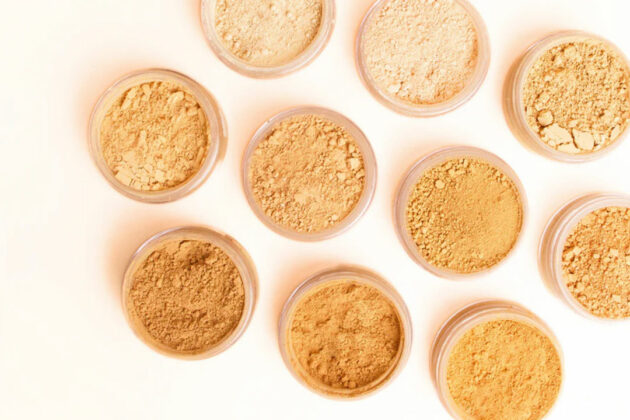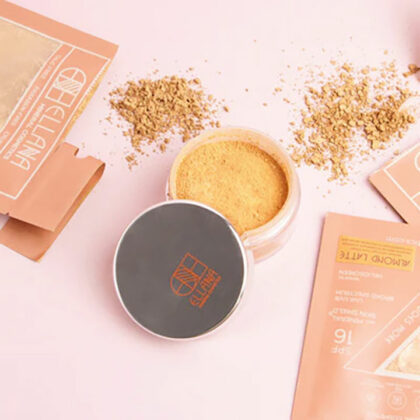Inclusivity, eco-friendly trends seen reshaping the beauty industry
By Patricia B. Mirasol, Reporter
THE push for inclusivity and eco-friendly practices continues to impact the landscape for beauty businesses, according to an industry player.
The beauty industry is not just about enhancing one’s appearance; it is also a platform for empowering individuals while safeguarding the environment, said Theresa Carbonel-Buenaflor, founder of the 16-year-old makeup brand Ellana Mineral Cosmetics.
The push for inclusivity in the beauty industry acknowledges that beauty knows no bounds. This means offering products that cater to individuals with diverse skin tones, Ms. Buenaflor said in an interview with BusinessWorld.
Ellana Mineral Cosmetics was established on Sept. 9, 2007, with the goal of addressing the concerns of individuals with delicate skin, she noted.
Her inspiration stemmed from a friend who grappled with the scarcity of makeup suitable for her.
“I wanted to make something to address Coney [Avellana’s] problems,” Ms. Buenaflor said.
According to her, the challenge was apparent — individuals with morena (medium brown) skin tones found themselves underserved in a market dominated by Western brands.
“She had morena skin, and there weren’t a lot of options for people with morena skin,” she said. “It was a lot of Western brands then.”
“It was hard to match the shade of the Filipina skin tone. We were the first in that movement,” she added.
The early years saw Ellana Mineral Cosmetics selling products at bazaars from 2008 to 2012, carving a niche presence. Soon thereafter, it transitioned to a recognized name in the beauty sector, securing spots in retail giants such as Landmark, Watsons, and Robinson’s Department Store.
Ellana’s core customer profile is predominantly female, aged between 18 to 45 years old, living in urban and urbanizing areas, and within the B, C1, and C2 socioeconomic classes. They are also knowledgeable about skin concerns and value-driven, Ms. Buenaflor said.
NEW GENERATION
The new generation, known as Gen Z Filipinos, is redefining beauty standards.
They are not merely consumers; they are conscious advocates for eco-friendly products and brands, Ms. Buenaflor said.
The values and preferences of Gen Zs revolve around sustainability, environmental responsibility, and ethical consumption. Hence, the brand remains vegan and cruelty-free, adhering to principles that resonate strongly with Gen Z Filipinos, Ms. Buenaflor said.
They’re really more into the eco, the clean beauty, and it resonates to them more versus the people who are used to traditional makeup,” she noted.
Producing vegan makeup is not as stringent as halal products, she said, referring to ingredients and processes permissible under Islamic law.
“Vegan is just choosing plant-based ingredients. You can use synthetic ingredients as long as it’s not animal-based,” she noted. “Cruelty-free is easy because it’s simply doesn’t test on animals nowadays, and a lot of people can claim that.”
The eco-friendly promise, in contrast, is challenging because “not a lot of people understand what it is all about,” she also said.
To reduce its carbon footprint, the company made the decision to cut down on packaging by introducing refillable sachets and reusable jars. It also started using glass instead of plastic.
Availing of a loose mineral foundation from its product line, for instance, means having to purchase the refillable sachet separately from the reusable jar.
“A lot of people would ask me, ‘Why are you making it hard on the customer? Just put the powder directly in the jar.’ It’s the effort. It’s that conscientious act of reusing your jar that… you don’t have to throw it away.”
Ms. Buenaflor, who grew up with parents who are vegan, said it was about the advocacy of being conscientious about what one uses.
She said the larger beauty industry is likewise heading towards this direction.
“I went to Cosmoprof [an international beauty trade show] in Singapore last year, and the theme was everything sustainable,” she said, adding that it was not like that in the past.
An August 2023 study by Statista cited the global beauty and personal care market’s 2023 revenue at $579.2 billion. Its compound annual growth rate (CAGR) is also forecasted to be 3.53% between 2023 to 2028.
In the Philippines, the same market amounts to $5.89 billion in 2023, with a 2023-2028 CAGR of 0.83%.
PRICING
Ellana has recently started lowering its product prices in a bid to become more accessible to its core market.
“As a 16-year-old brand, you’re not young anymore,” Ms. Buenaflor said. “The values that we have are being championed by the younger generation, so we need to be more leveled towards that demographic.”
“That’s why we’re also addressing accessible prices,” she added.
Planning and bulk prices are how the company manages this. Apart from the raw materials, “a lot of the costs that go into it are actually the packaging,” which makes buying in bulk a means to achieve its objective of lower prices, Ms. Buenaflor said.
Planning is a crucial aspect, and ingredient sourcing is another challenge, she noted. Half of Ellana’s raw materials are from South Korea.
“Everything has to come from outside,” she said. “There’s a lack of processing plants and manufacturing facilities that are really focused on ingredients in [this] country.”
Even so, the Philippine beauty industry, Ms. Buenaflor said, has become more competitive since she started selling lip balms as a college student in 2003.
Even during the pandemic, “there was an explosion of beauty brands, which is good, honestly,” she noted. “I believe that with a lot of competition comes innovation, more creativity, and many more things to play with, unlike 20 years ago.”
The industry is still perceived as a shallow one, according to Ms. Buenaflor. “We get a lot of those — even up to now,” she said, “but to see how a transformation is…even putting on red lipstick can build confidence. I think it’s very rewarding to see that.”









